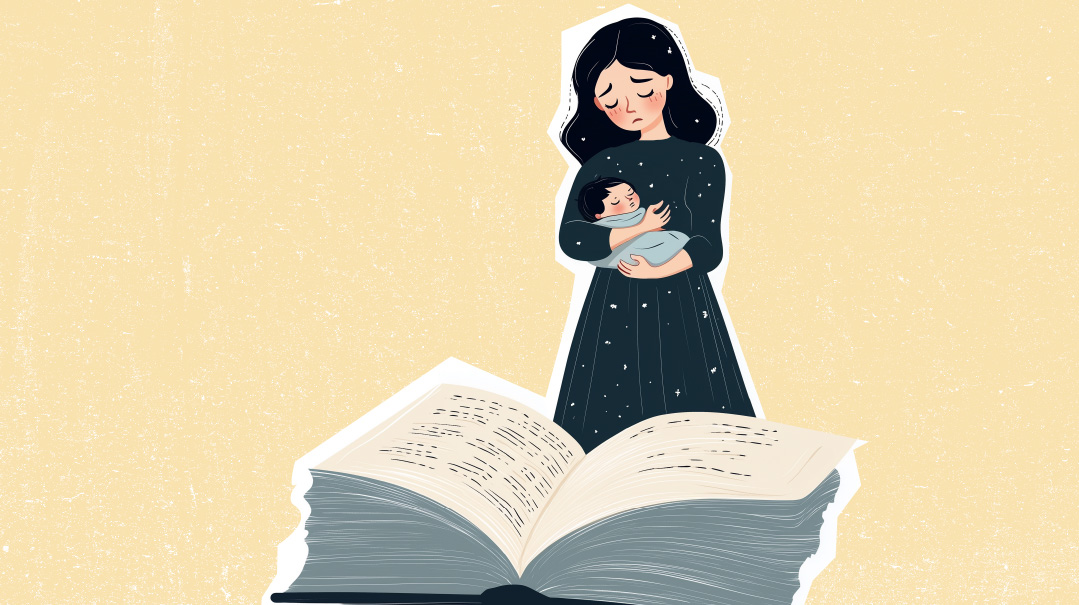“What Does ‘Sacrfice’ Mean for Me as a Wife?”
| March 18, 2025“Marriage is about moving from the ‘me’ to the ‘we.’ We don’t sacrifice for each other. We sacrifice for both of us”

Facilitated by Faigy Peritzman
Q:
I always learned how important it is to make your husband’s learning a priority, and to sacrifice the trivialities of materialism for the ultimate sechar.
While I understand that each person has her own guidelines as to what constitutes sacrifice for her, after two years of marriage I’m still struggling with the whole idea of sacrifice in principle. I’ve heard shiurim saying that we shouldn’t look at prioritizing our husband’s learning as a sacrifice, but as a privilege, and other shiurim saying that the more you can give up for your husband’s learning, the more you both will appreciate it.
If I feel like I’m sacrificing because my husband is rarely home, especially now that we’ve just had a baby, then should I pat myself on the back for how much mesirus nefesh I have for learning, or start changing the status quo so that it feels like a privilege, not a burden?
For Both of You
Elisheva Kaminetsky
The idea of mesirus nefesh — sacrifice — in general and in marriage, can certainly be perplexing and confusing. But there’s an important reframing here that needs to be shared. This dilemma is not about lost seminary ideals, but about understanding the fundamentals of marriage.
We know that marriage requires compromise. That’s Kallah Lesson 101. But there’s another equally, if not more important concept, and that’s the importance of coexistence. Each spouse doesn’t have his/her own exclusive domain. It’s not his learning, my shopping, his sports game, my coffee date with friends. We don’t operate on a premise of parallel existence, but coexistence.
Marriage is about moving from the “me” to the “we.” We don’t sacrifice for each other. We sacrifice for both of us, for our home, and the values we share as the foundation of our home. While he may be the one learning, the value of a home rooted in Torah is both of yours.
When each of you do whatever you need to do for yourself, to be strong, healthy people, rooted in the values that you want to build your home on, then whatever it takes to contribute to that is “we time,” not “me time.”
It certainly can be challenging and overwhelming to bear the full responsibility of parenting while your husband’s out learning. But you must recognize that although he’s not home, he’s still contributing to your home. Therefore, it’s not his learning versus my needs, it’s recognizing our needs.
That said, if something doesn’t feel like a shared value, and you don’t see it as adding to your home or to your marriage, then that’s when you need to pause.
This perspective’s not only an important one for marriage, but it’s actually a litmus test that can be used for measuring when any sacrifice you make has moved to a space that’s unhealthy. And if you don’t feel this value is worth the sacrifice, then that’s a separate question that must be evaluated.
Elisheva Kaminetsky is a wife, parent, grandparent, principal, adult educator, consultant, and kallah teacher.
Grappling Means Growth
Shevi Samet
Allow me to zoom out and address an angle of this question you didn’t mention directly, yet I hear versions of multiple times a week, in multiple contexts. During our school years, especially upper high school and seminary, we become aware of the myriad seeds our parents and teachers have planted for years. We deepen our thought process around bigger questions such as, “Who am I? What am I doing here? What do I want?” Each of these questions feels like a problem to be solved, a code to be cracked. Once we enter the adult world, what some people call “real” life (although I’m of the opinion that all life is real), we begin to recognize that there’s no universal perfect algorithm for figuring out how we’re meant to be spending this moment: Do we give in or hold a boundary? Do we push a bit harder or accept? This lack of clarity may be frustrating, but it’s the entire point! Life isn’t a problem to be solved as much as it is a challenge to be navigated.
In your particular case, you’re struggling to apply several valuable principles: spending meaningful time with your husband as you continue to build your marriage; partnering with him in raising your child and being receptive of his support, physical and emotional; and continuing to deepen your family’s connection to Hashem and His Torah through your husband’s consistent limud haTorah.
You value all these things, and perhaps at the heart of navigating a decision between multiple and sometimes conflicting values, must be the honest desire for both. In this vein, we may occasionally defer one for the other, but we’re not forfeiting ourselves or our values.
This intricate process of trying and adjusting and assessing and recalibrating, and reapplying the same tactic tomorrow and getting a completely different result — that’s what we call growth. We’re sometimes so motivated by the desire to succeed, we forget that the ultimate success is to be growing. And so long as you’re grappling, you’re growing.
Shevi Samet is a wife and mother, educator, kallah teacher, and Core MMC.
Defining Sacrifice
Ruchi Koval
What’s the true meaning of the word “sacrifice?”
There’s no Torah word that directly parallels this word. The two that come to mind are “korban” and “mesirus nefesh.” A korban is often translated as a “sacrifice,” but actually it comes from the word karov, which means “close.” When a person brought an offering to the Beis Hamikdash, they were trading in something of material value for a greater spiritual cause.
When you look at the term “mesirus nefesh,” it’s more of a middah — a character trait. The willingness to sacrifice of yourself is a character trait. However, as with every other character trait, it can be taken to an unhealthy extreme. Just as a person can be too generous, too patient, or too kind, which will often lead to burnout and resentment, being too self-sacrificing can likewise lead to burnout and resentment, if a person feels that their essential self is being sacrificed and that they don’t know who they are anymore. This often happens when parenting young kids, where women have to consciously reclaim their identities so they don’t lose themselves in their self-sacrifice.
I’m not sure who told you that the more you sacrifice, the more you’ll appreciate it, but that’s actually untrue (as you’re experiencing right now). It’s essential to listen to your own gut when you hear messages like that and check them against your own experiences. You’re the expert on you, and some messages need to be filtered out because they can be unhealthy or damaging for you. Furthermore, it pays to mention that something can be beautiful and also hard, such as making Pesach, raising children, being married.
In fact, most things that are magnificent, that you’ve invested time and energy into, will be a sacrifice and also a privilege.
How big should that tradeoff be? As big as what works for you, and as much as brings you closer to, and not further away from, the person you want to be. And that’s not a solo decision to make. That’s a decision made as a couple, with both your true emotional states taken into account.
Ruchi Koval is a kiruv rebbetzin, parent coach, author, public speaker, mother, and grandmother.
Thank you to Tova Wasserman for pitching the idea for this question.
(Originally featured in Family First, Issue 936)
Oops! We could not locate your form.







